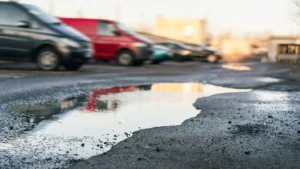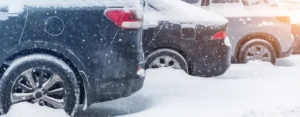A winter maintenance contract is one of the most important safeguards a business can have. Snow and ice create serious risks, from slips and falls to lost productivity and disrupted logistics. Choosing the right partner to manage these challenges is critical, but with many providers in the market, how can you be sure you’re selecting the best?
Here are six key questions every facilities or procurement manager should ask when evaluating a winter maintenance contract and why the answers matter.
1. How accurate are the weather forecasts being used?
A reliable contract is only as good as the data it’s built on. Generic forecasts that cover broad regions can trigger unnecessary visits or, worse, miss site-specific risks. The best providers use professional, site-specific forecast modelling to determine the exact conditions on your premises. This precision avoids wasted costs while making sure safety is never compromised.
2. Is the pricing model right for your business?
Fixed-price and cost-per-visit contracts each have their place. A strong winter maintenance partner should offer flexibility, allowing you to choose the model that fits your budget certainty, risk appetite, and operational needs. Some even provide hybrid options for the best of both worlds.
3. What evidence of service will you receive?
Proof of service is essential for compliance, insurance claims, and peace of mind. Look for contracts that provide transparent, documented records of every visit, including time-stamped GPS data and photographic evidence. Without this, it can be difficult to demonstrate that duty of care has been met.
4. How quickly can services be delivered?
During a cold snap, demand peaks sharply. Some providers may struggle with capacity, leaving your sites exposed. A great contract includes guaranteed response times and nationwide resources that can scale during severe weather. Ask how the provider manages peaks in demand and whether they have a proven track record of delivering at scale.
5. What materials and methods are being used?
Not all de-icing products are equal. Some salts and grits can damage surfaces or stain flooring when carried inside. Check whether the provider uses sustainable, effective products such as white marine salt, which is both environmentally responsible and less damaging to assets.
6. How transparent is communication and reporting?
Clear, proactive communication makes winter maintenance easier to manage. The best contracts include access to online portals where you can see job progress, download service reports, and request additional visits at the click of a button. Without this, you may find yourself chasing updates at the busiest times.
Setting the Standard
By asking these six questions, you can separate providers who simply offer “gritting services” from those who deliver genuine assurance. A great winter maintenance contract is built on accuracy, flexibility, transparency, responsiveness, sustainability, and clear communication.
OUTCO sets the benchmark in all these areas. With over two decades of experience, award-winning technology, and a 99.8% service success rate, OUTCO ensures that businesses stay safe, compliant, and operational throughout the winter.








